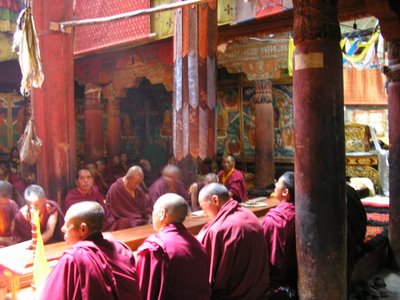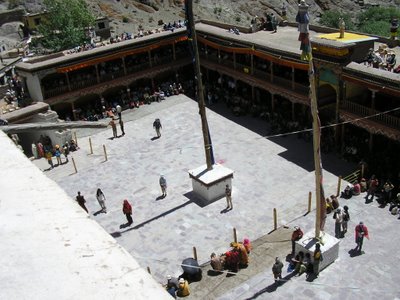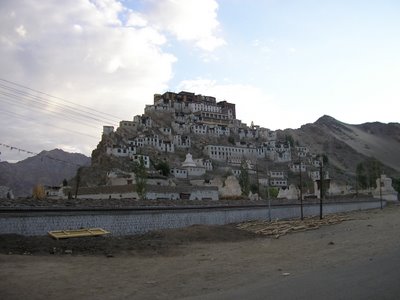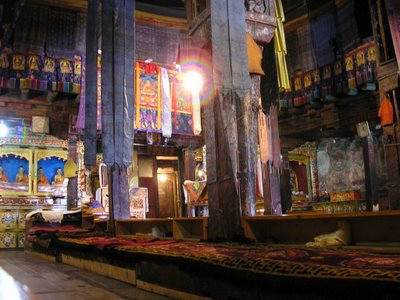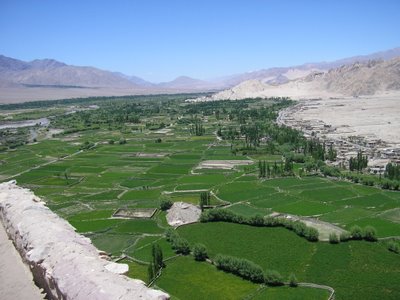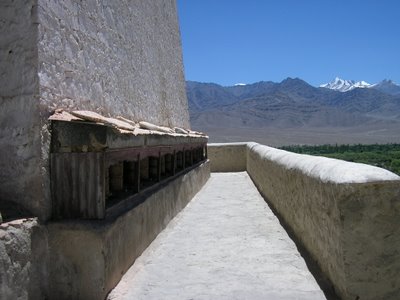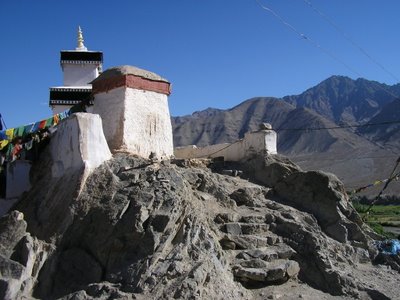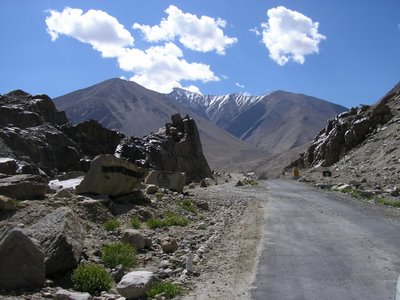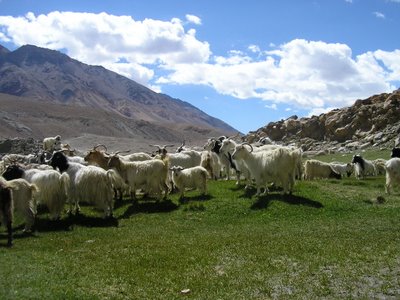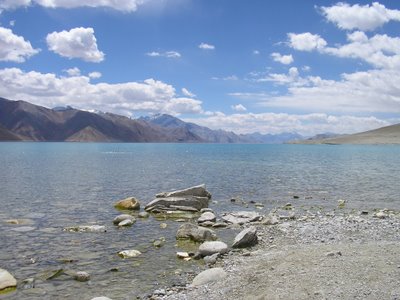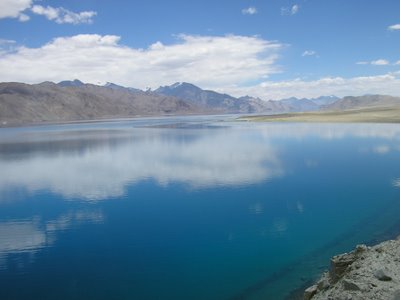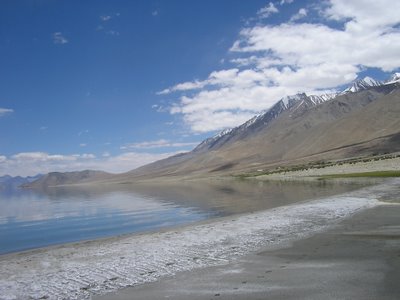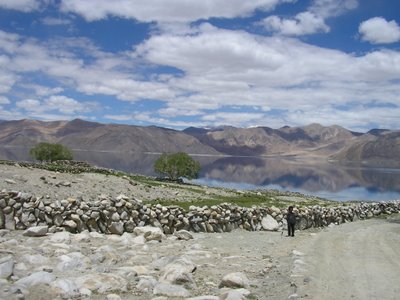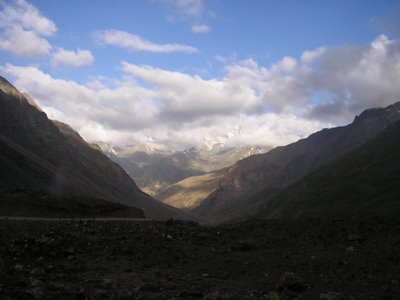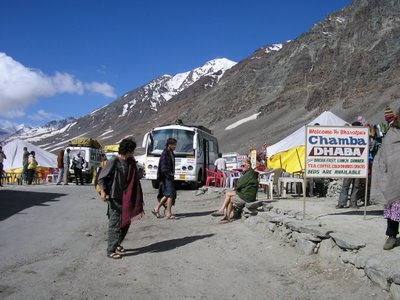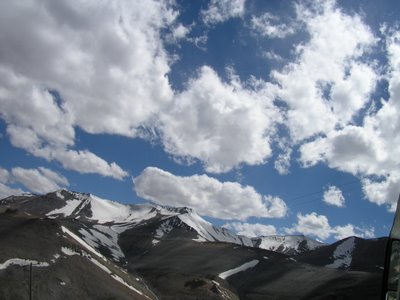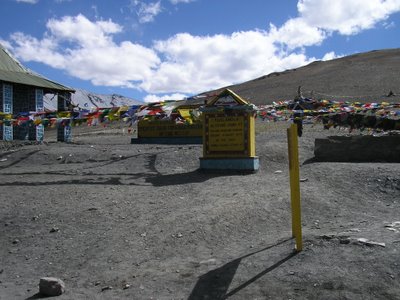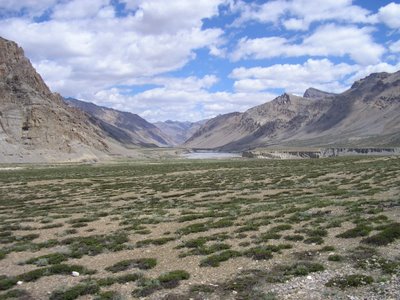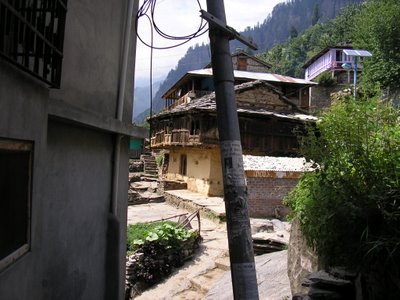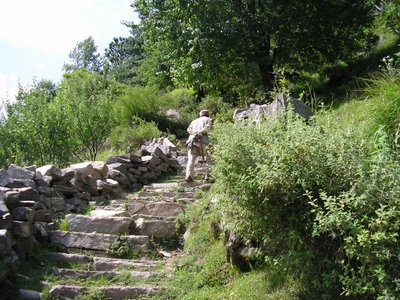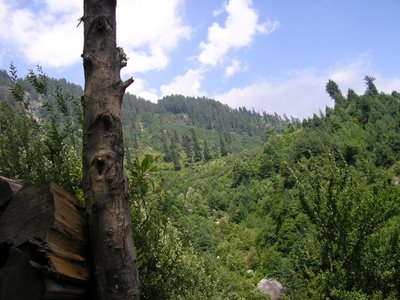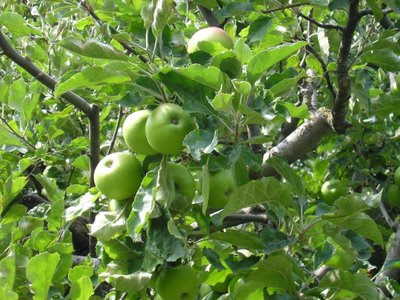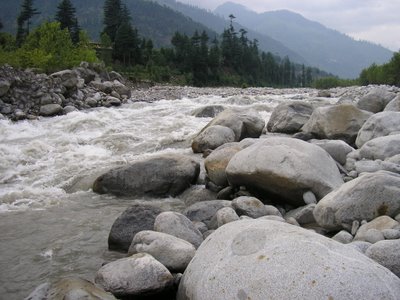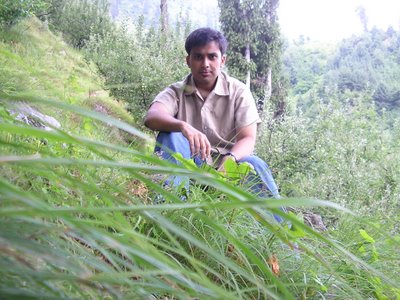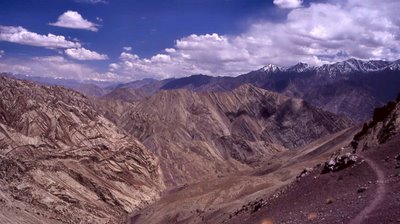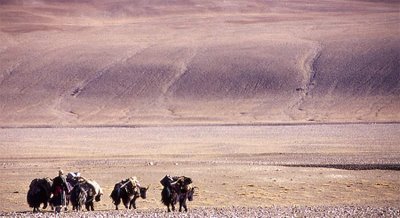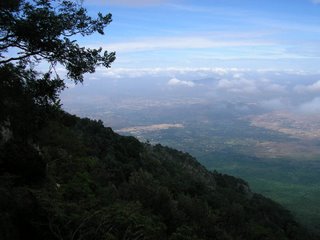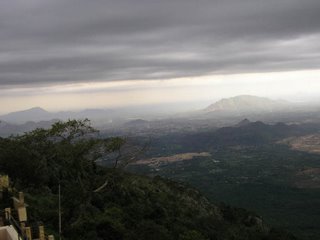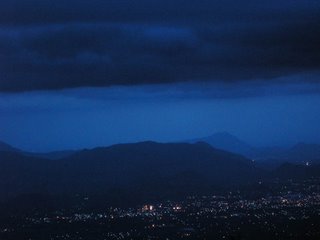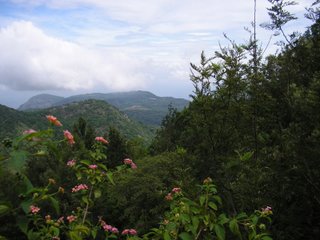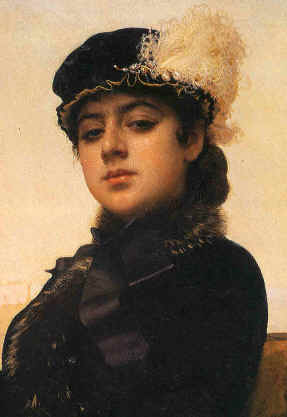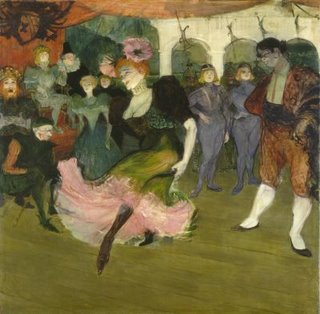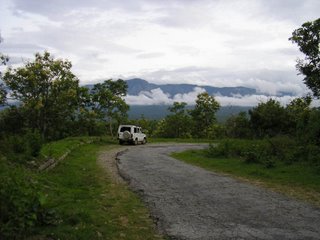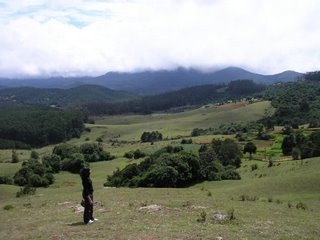
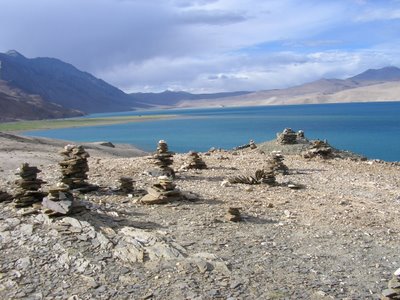
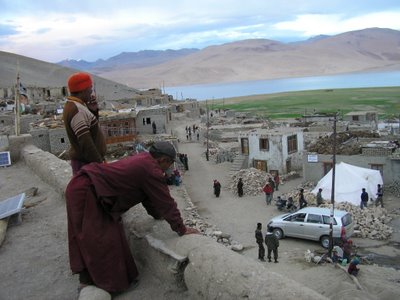
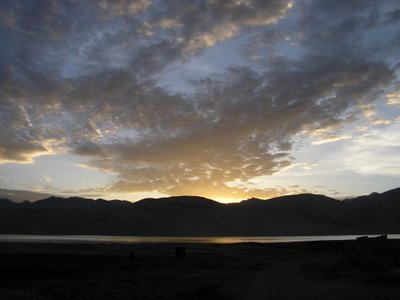
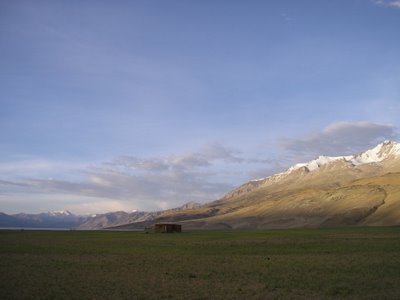
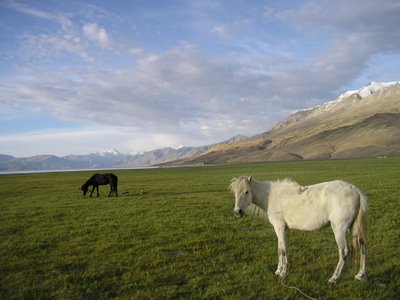
The soldiers stared at us with their sunburnt faces. They were surprised to see us there - Karzok 15075 ft. A little village by the Tsomo Riri lake. It was twilight and the Lama was in a hurry. This little village has no electricity. No roads and no phone lines too. One of the soldiers said, "The Gompa is closing, go in." I thanked him and went in.
In the darkness inside, we made out the shapes of idols. The door shone brightly with the light outside. The Lama moved deftly between the shapes. To my questions, he smiled his practiced smile. Ofcourse we had no idea what was inside until the flash of my camera revealed all in a trice. Rows of idols all gloriously decorated. And the interiors so old and grand.
Outside, the sun set upon an enchanting lake. Hills looked upon it, mesmerized, and the gusty wind threatened to blow us away. Green pastures of grass on which grazed horses. A brown house in the middle of nowhere. We stayed the night. Next morning after the orange sunrise, we cut across the mountain and made our own roads.
Tsomo Riri
Her voice rings through,
The cinnamon hills,
Baked brown in a bright sun.
Hers, is a voice that brims over,
The rippled waves,
And gushes through,
The jagged cliffs,
Into an ancient edifice,
Where a lone bell sings,
Of an ancient man,
And his whispered words.
Happy men with burnt faces,
Build hopeful roads,
That stand for a while,
And are washed away,
By brooks of muddy water.
In the distance,
Her voice still rings,
And the bell still sings,
And the sun-baked hills,
Still stare lovingly,
At her rippled waves.

